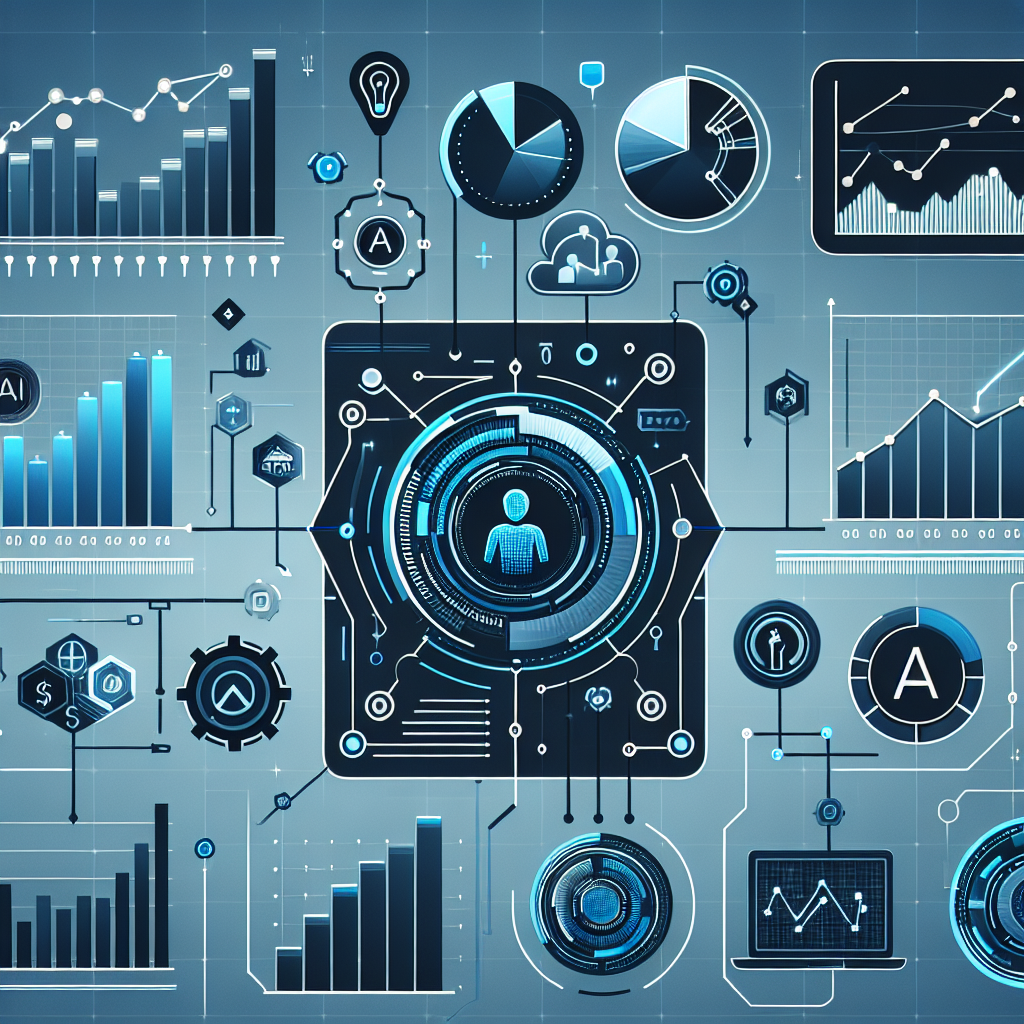AI-Driven Business Intelligence for Sales Forecasting
In today’s rapidly changing business landscape, companies are constantly seeking ways to improve their decision-making processes and gain a competitive edge. One area where this is particularly important is sales forecasting. Accurate sales forecasting can help companies better plan their resources, anticipate market changes, and ultimately drive revenue growth. This is where AI-driven business intelligence comes into play.
AI-driven business intelligence (BI) refers to the use of artificial intelligence technologies, such as machine learning and data analytics, to gather, analyze, and interpret data to make more informed business decisions. When applied to sales forecasting, AI-driven BI can help companies predict future sales trends with a higher degree of accuracy, leading to more effective planning and resource allocation.
One of the key benefits of AI-driven BI for sales forecasting is its ability to process vast amounts of data in real-time. Traditional forecasting methods often rely on historical data and manual analysis, which can be time-consuming and prone to human error. In contrast, AI-driven BI can quickly analyze large datasets from various sources, such as CRM systems, social media, and market trends, to identify patterns and correlations that can help predict future sales outcomes.
Another advantage of AI-driven BI is its ability to adapt and learn from new data. Machine learning algorithms can continuously analyze incoming data to improve their accuracy and make more precise predictions over time. This iterative process allows companies to refine their sales forecasting models and stay ahead of market trends.
AI-driven BI can also provide deeper insights into customer behavior and preferences, helping companies tailor their sales strategies to better meet the needs of their target audience. By analyzing customer data, such as purchase history, browsing behavior, and demographic information, companies can identify patterns and trends that can inform their sales and marketing strategies.
Furthermore, AI-driven BI can help companies identify potential opportunities and threats in the market, allowing them to adjust their sales forecasts and strategies accordingly. For example, AI algorithms can analyze competitor data, market trends, and economic indicators to help companies anticipate changes in demand or pricing, and take proactive measures to capitalize on emerging opportunities or mitigate risks.
In addition to improving sales forecasting accuracy, AI-driven BI can also streamline the decision-making process by providing executives and sales teams with real-time insights and recommendations. By automating data analysis and generating actionable insights, AI-driven BI can enable faster decision-making and more agile responses to changing market conditions.
Overall, AI-driven BI for sales forecasting offers companies a powerful tool to improve their decision-making processes, drive revenue growth, and stay ahead of the competition. By harnessing the power of artificial intelligence, companies can gain deeper insights into their sales data, predict future trends with greater accuracy, and make more informed decisions to achieve their business goals.
FAQs
Q: How is AI different from traditional forecasting methods?
A: Traditional forecasting methods rely on historical data and manual analysis, which can be time-consuming and prone to human error. AI-driven BI, on the other hand, uses machine learning algorithms to quickly analyze large datasets from various sources and identify patterns and correlations to make more accurate predictions.
Q: Can AI-driven BI predict sales outcomes with 100% accuracy?
A: While AI-driven BI can significantly improve sales forecasting accuracy, it is important to note that no forecasting method can predict sales outcomes with 100% accuracy. Factors such as market volatility, changing customer preferences, and unforeseen events can impact sales forecasts.
Q: How can companies integrate AI-driven BI into their existing sales forecasting processes?
A: Companies can integrate AI-driven BI into their existing sales forecasting processes by leveraging AI-powered tools and platforms that are specifically designed for sales forecasting. These tools can help companies gather, analyze, and interpret data to make more informed decisions and improve their forecasting accuracy.
Q: What are the potential challenges of implementing AI-driven BI for sales forecasting?
A: Some potential challenges of implementing AI-driven BI for sales forecasting include data quality issues, lack of expertise in AI technologies, and resistance to change within the organization. Companies should address these challenges by investing in data quality management, training employees on AI technologies, and promoting a culture of data-driven decision-making.
Q: How can companies measure the ROI of implementing AI-driven BI for sales forecasting?
A: Companies can measure the ROI of implementing AI-driven BI for sales forecasting by tracking key performance indicators, such as sales growth, revenue increase, and cost savings. By comparing these metrics before and after implementing AI-driven BI, companies can assess the impact of AI on their sales forecasting accuracy and overall business performance.

